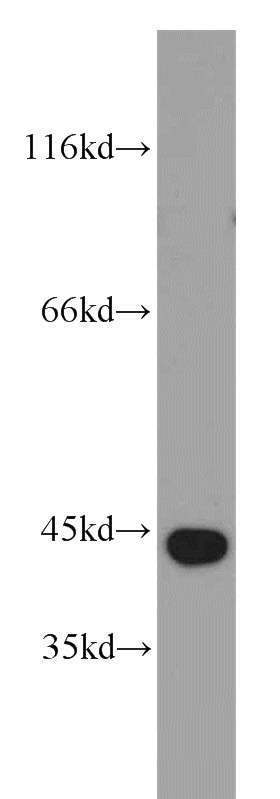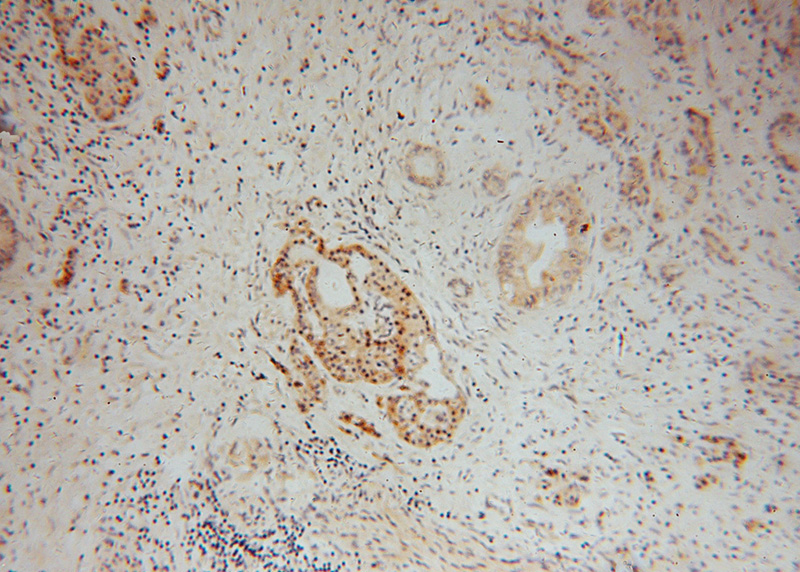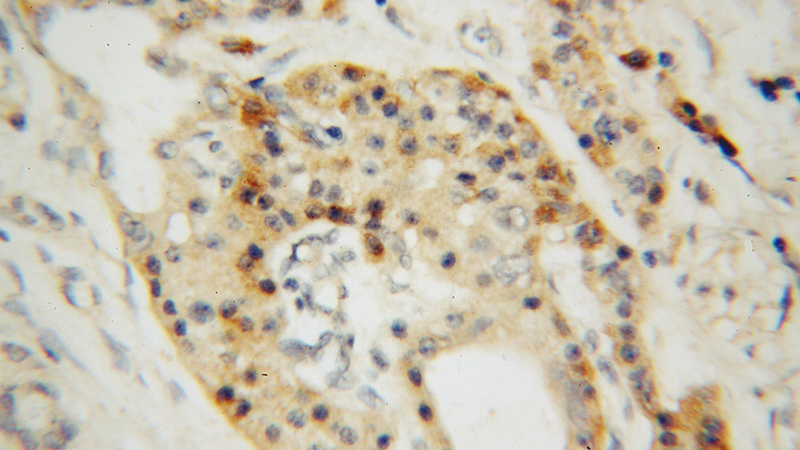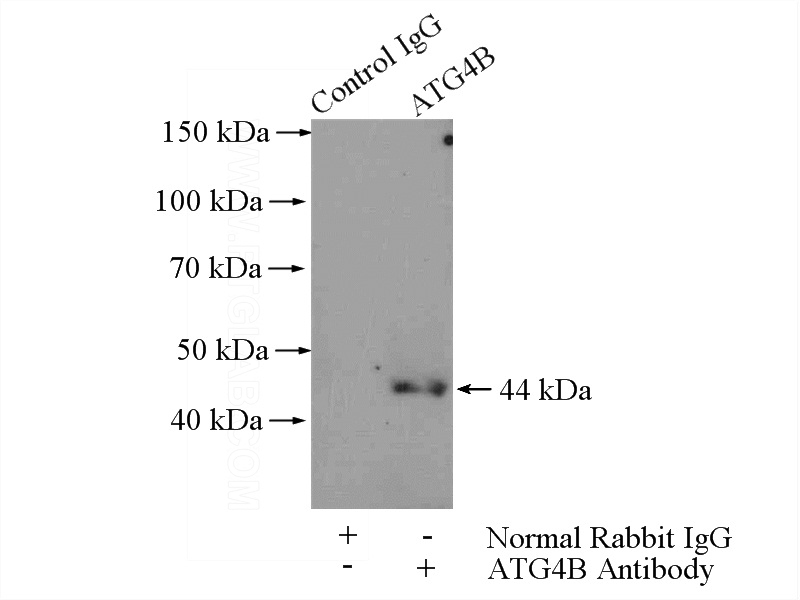-
Product Name
ATG4B antibody
- Documents
-
Description
ATG4B Rabbit Polyclonal antibody. Positive WB detected in human brain tissue, fetal human brain tissue. Positive IP detected in mouse skeletal muscle tissue. Positive IHC detected in human pancreas cancer tissue, mouse heart tissue. Observed molecular weight by Western-blot: 44 kDa
-
Tested applications
ELISA, WB, IHC, IP
-
Species reactivity
Human,Mouse,Rat; other species not tested.
-
Alternative names
APG4B antibody; ATG4B antibody; AUTL1 antibody; Autophagin 1 antibody; Cysteine protease ATG4B antibody; hAPG4B antibody; KIAA0943 antibody
-
Isotype
Rabbit IgG
-
Preparation
This antibody was obtained by immunization of ATG4B recombinant protein (Accession Number: NM_013325). Purification method: Antigen affinity purified.
-
Clonality
Polyclonal
-
Formulation
PBS with 0.02% sodium azide and 50% glycerol pH 7.3.
-
Storage instructions
Store at -20℃. DO NOT ALIQUOT
-
Applications
Recommended Dilution:
WB: 1:200-1:2000
IP: 1:200-1:2000
IHC: 1:20-1:200
-
Validations

human brain tissue were subjected to SDS PAGE followed by western blot with Catalog No:108296(ATG4B antibody) at dilution of 1:800

Immunohistochemical of paraffin-embedded human pancreas cancer using Catalog No:108296(ATG4B antibody) at dilution of 1:50 (under 10x lens)

Immunohistochemical of paraffin-embedded human pancreas cancer using Catalog No:108296(ATG4B antibody) at dilution of 1:50 (under 40x lens)

IP Result of anti-ATG4B (IP:Catalog No:108296, 4ug; Detection:Catalog No:108296 1:500) with mouse skeletal muscle tissue lysate 3600ug.
-
Background
ATG4B(autophagy 4) is also named as APG4B, AUTL1, KIAA0943 and belongs to the peptidase C54 family. It is a homolog of yeast Apg4, a cysteine protease involved in autophagy and is a cytoplasmic enzyme. This protein is highly expressed in skeletal muscle, with lower expression in heart, liver, and pancreas and no expression is detected in fetal tissues by the northern blot. ATG4B is widely expressed in tumor cell lines(PMID:12446702). It has 5 isoforms produced by alternative splicing.
-
References
- Tanji K, Zhang HX, Mori F, Kakita A, Takahashi H, Wakabayashi K. p62/sequestosome 1 binds to TDP-43 in brains with frontotemporal lobar degeneration with TDP-43 inclusions. Journal of neuroscience research. 90(10):2034-42. 2012.
Related Products / Services
Please note: All products are "FOR RESEARCH USE ONLY AND ARE NOT INTENDED FOR DIAGNOSTIC OR THERAPEUTIC USE"
